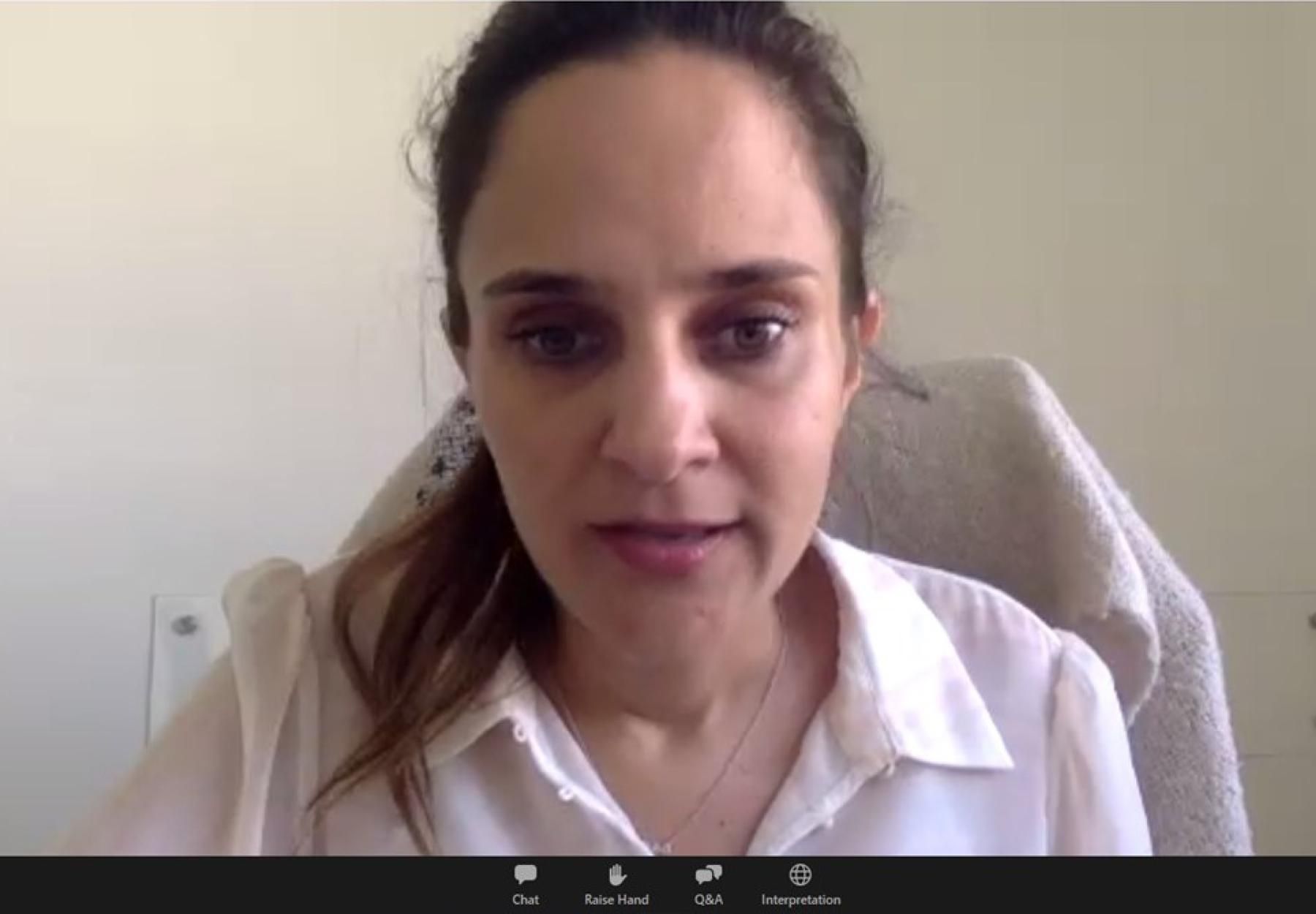
Mariam Al Jaajaa, the general manager of The Arab Group for the Protection of Nature, was invited by the United Nations Economic and Social Commission for Western Asia (ESCWA). She participated as a speaker in the first session of the Commission's series of dialogues on social justice and food security policies in the Arab region. It was held on Wednesday, October 20, 2021.
These sessions are an attempt by the Committee to closely understand the reality of food security in the region, through representatives and experts from different sectors. That was after the objections against the United Nations Food Summit held at the end of September.
Al Jaajaa started her speech entitled “Food Security during Conflicts and Crisis” with a reminder of the Triple Nexus Approach, and its part in the response to the food insecurity. The approach is adopted by the United Nations, which is based on the principle of the connection of short-term humanitarian and relief support, long-term development support, and peace-building while handling the main causes of vulnerability or crisis.
Al Jaajaa differentiated between this new approach and the popular resilience principle, the latter is attractive but not sufficient, as it does not adopt basic concepts, such as the importance of handling the main causes of vulnerability, stopping or preventing crises and conflicts.
Al Jaajaa mentioned, during her speech, the difficulties facing the Triple Nexus Approach to its implementation on the ground. As there was a need to define the three pillars in a participatory manner, particularly the third pillar: the pillar of peace. and that approach had not been taken into a clear action plan, with a distribution of roles and responsibilities, and had not even been developed with a financial plan to help implement it.
She also suggested a set of solutions to facilitate the implementation of this approach, such as enhancing the reliance of humanitarian and food support on local and regional groceries, and strengthening local food systems rather than changing them, to ensure safe and varied food access, especially under the closures that threaten trade lines and the movement of import and export. Moreover, the ownership of supporting programmes should be given to countries, and the conflicts should be analysed in a local and participatory manner that respects international law, and not in the form of external interference that does not respect international law and does not pay attention to the details of the internal region. That is all to reach the central point of respecting the obligations of countries outside their territories and protecting the population from blockades, which are one of the policies of collective punishment, which threaten food security in the besieged areas very significantly.
Al Jaajaa called, at the end of her speech, for the implementation of the framework on food security in the face of extended crises. Which was prepared by the United Nations Committee on World Food Security (CFS) in 2015 and ratified by the majority of countries in the world, after APN made great efforts to contribute to its writing and dissemination. Al Jaajaa considered the marginalization of this framework at the United Nations Food Summit as one of its biggest drawbacks, and that was one of the reasons that prompted APN, with many of other civil society organizations, to boycott this summit and launch the People's Summit for Food Systems in the same period.